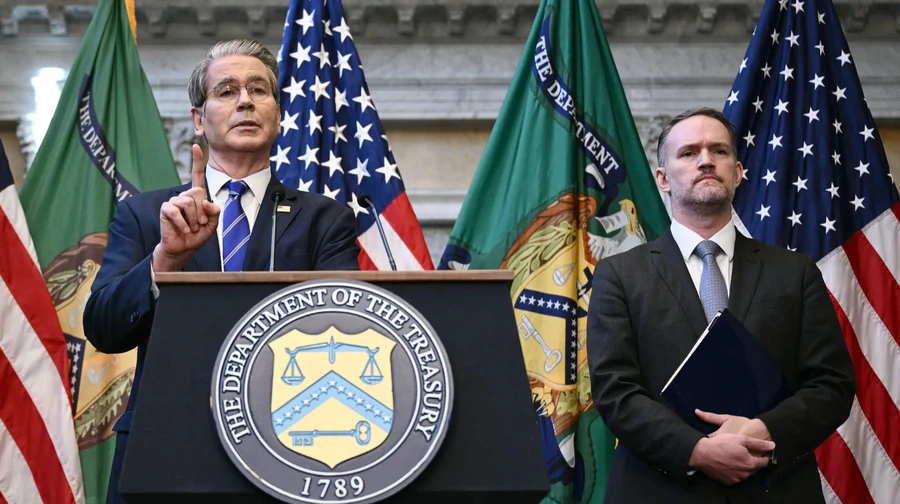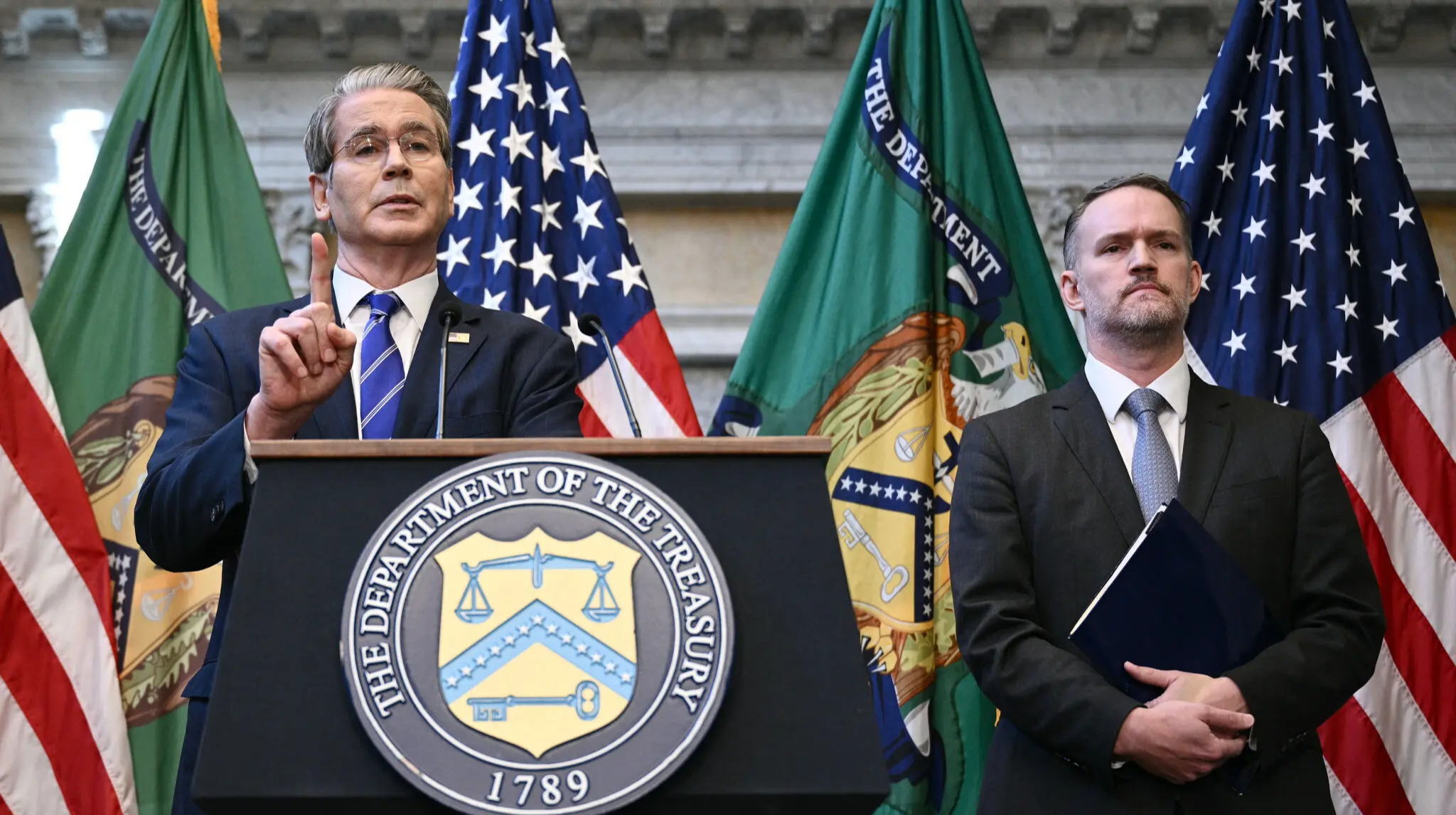“ The Trump administration has announced plans to significantly expand the state’s role in the economy by increasing its stake in US companies operating in strategically important industries, seeking to reduce China’s influence on global supply chains for rare earth minerals and technology. Source: US Treasury Secretary Scott Bessent at a CNBC forum on investing in America, The New York Times Details: China’s dominance of rare-earth metals requires a “stronger industrial policy” from the US, Bessent said. According to him, the new approach of the Trump administration involves more active state intervention in strategic sectors of the economy – from defense to the production of semiconductors and mineral resources. “When you’re dealing with a non-market economy like China, you have to apply industrial policy,” Bessent emphasized. Such moves mark a change in the traditional course of the United States, which has historically advocated free markets and open investment. Now, according to the minister, Washington seeks to imitate some elements of China’s economic strategy in order to secure its own interests in the field of technology and national security. The administration has already acquired stakes in several companies, including US Steel, Intel, Trilogy Metals and MP Materials, a producer of rare earth minerals. President Trump has also called for capping Nvidia and AMD’s profits from sales in China and creating a “strategic mineral stockpile” with financial partners including JPMorgan Chase. Bessent noted that the government has identified seven strategic sectors in which it seeks to strengthen control. He paid special attention to the defense sector, where the US government is the main customer, and said that companies should direct more funds to research and not to buyback shares. “Our defense companies are terribly behind in terms of supply,” Bessent said, adding that the US would use “minimum prices” and “forward procurement” mechanisms to curb Chinese dominance in certain production chains. Tensions between the world’s two largest economies have risen sharply since China announced a new licensing system for exports of products containing rare earth minerals or produced using Chinese technology. The new rules, which will take effect later this year, will require foreign companies to obtain licenses from Beijing to trade in a wide range of goods, from cars to computer chips. Such restrictions effectively block the supply of raw materials for American and European defense companies, which until now depended on Chinese materials. In response, Trump threatened to impose additional 100 percent tariffs on Chinese goods starting Nov. 1 and cancel an upcoming meeting with Chinese leader Xi Jinping. Although later, after the stock market plunged, Trump softened his rhetoric somewhat, saying that a meeting with Xi was still possible. “When we get an announcement like this week from China regarding rare minerals, we have to be self-sufficient or have sufficient resources from our allies,” Bessent said. US Trade Representative Jamieson Greer called the new Chinese rules “a means of economic pressure on all countries of the world” and accused Beijing of violating the terms of a trade truce reached earlier this year. He said Washington was prepared to impose tariffs if China’s licensing system went into effect. The trade dispute has also been exacerbated by the US decision to impose duties on Chinese ships calling at US ports. In response, Beijing has threatened mirror measures and has already imposed sanctions against five subsidiaries of South Korea’s Hanwha, which helps the US build ships. Despite rising tensions, Trump and Xi are still expected to meet in South Korea this month.”, — write: www.pravda.com.ua
 Scott Bessent and Jamieson Greer. Photo: Getty Images
Scott Bessent and Jamieson Greer. Photo: Getty Images Source: US Treasury Secretary Scott Bessent at the forum on investing in America, organized by CNBC, conveys The New York Times
Details: According to Bessent, China’s dominance in the supply of rare earth metals requires a “stronger industrial policy” from the US.
Advertising:
According to him, the new approach of the Trump administration involves more active state intervention in strategic sectors of the economy – from defense to the production of semiconductors and mineral resources.
“When you’re dealing with a non-market economy like China, you have to apply industrial policy,” Bessent emphasized.
Such moves mark a change in the traditional course of the United States, which has historically advocated free markets and open investment. Now, according to the minister, Washington seeks to imitate some elements of China’s economic strategy in order to secure its own interests in the field of technology and national security.
The administration has already acquired stakes in several companies, including US Steel, Intel, Trilogy Metals and MP Materials, a producer of rare earth minerals. President Trump has also called for capping Nvidia and AMD’s profits from sales in China and creating a “strategic mineral stockpile” with financial partners including JPMorgan Chase.
Bessent noted that the government has identified seven strategic sectors in which it seeks to strengthen control. He paid special attention to the defense sector, where the US government is the main customer, and said that companies should direct more funds to research and not to buyback shares.
“Our defense companies are terribly behind in terms of supply,” Bessent said, adding that the US would use “minimum prices” and “forward procurement” mechanisms to curb Chinese dominance in certain production chains.
Tensions between the world’s two largest economies have risen sharply since China announced a new licensing system for exports of products containing rare earth minerals or produced using Chinese technology. The new rules, which will take effect later this year, will require foreign companies to obtain licenses from Beijing to trade in a wide range of goods, from cars to computer chips.
Such restrictions effectively block the supply of raw materials for American and European defense companies, which until now depended on Chinese materials.
In response, Trump threatened to impose additional 100 percent tariffs on Chinese goods starting Nov. 1 and cancel an upcoming meeting with Chinese leader Xi Jinping. Although later, after the stock market plunged, Trump softened his rhetoric somewhat, saying that a meeting with Xi was still possible
“When we get an announcement like this week from China regarding rare minerals, we have to be self-sufficient or have sufficient resources from our allies,” Bessent said.
US Trade Representative Jamieson Greer called the new Chinese rules “a means of economic pressure on all countries of the world” and accused Beijing of violating the terms of a trade truce reached earlier this year. He said Washington was prepared to impose tariffs if China’s licensing system went into effect.
The trade dispute has also been exacerbated by the US decision to impose duties on Chinese ships calling at US ports. In response, Beijing has threatened mirror measures and has already imposed sanctions against five subsidiaries of South Korea’s Hanwha, which helps the US build ships.
Despite rising tensions, Trump and Xi are still expected to meet in South Korea this month.
